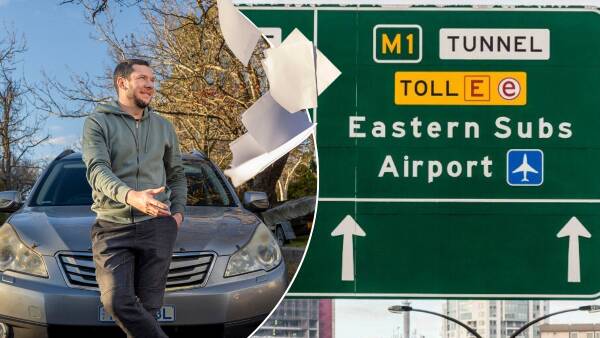
UPDATE: Canberrans wrongly billed for toll trips they never took could soon initiate a class action lawsuit against Transurban, according to leading lawyers. This urgent development comes as victims of billing errors are left to face mounting debts due to misidentified vehicles on toll roads.
Legal experts, including Greg Whyte from Piper Alderman, announced that while a class action is “feasible,” significant challenges remain. “If someone’s been charged in error, we can pursue a class action based on those grounds,” Whyte stated. His firm is currently spearheading a similar case in Queensland against Transurban’s Linkt system, which has also faced scrutiny for misbilling in other regions.
In the ACT, the toll system has mistakenly charged Canberrans for trips taken by other vehicles, particularly on NSW toll roads. This issue is exacerbated by the overlap of vehicle registration numbers, as both ACT and NSW utilize the Y-plates prefix, leading to confusion for automatic billing systems.
Victims of these billing errors are reportedly accumulating significant debts. Lawyers warn that the administrative fees associated with unpaid tolls can escalate quickly, with charges starting at A$8.50 and potentially rising to over A$23.81 if not addressed within ten days.
Mitchell Coidan, a principal lawyer at Slater and Gordon, expressed caution regarding the viability of a class action. “If Transurban has repaid the money wrongly taken from bank accounts, claims for compensation may be more difficult,” he noted. However, if customers received credits rather than refunds, the case for compensation strengthens.
The scale of the billing issue is alarming, with the NSW government confirming that there are approximately 358,000 vehicles registered with Y-plates, complicating the identification process for toll charges. Transurban has issued an apology to affected customers, describing such instances as “rare.” A spokesperson stated, “We sincerely apologize to any customer who has been impacted by duplicate license plates across jurisdictions.”
Legal experts emphasize that the complexity of identifying affected individuals poses a significant hurdle for a class action. However, Whyte believes that with diligent effort, the necessary data could be extracted from Transurban.
“This is the type of thing a class action is ideal for,”
said Avinash Singh of Astor Legal, who specializes in misidentification cases.
One affected driver, Dominic Dichiera, suggested a potential solution for the billing disputes: “Transurban should publish a picture of the vehicle its cameras believe has traveled the toll road. When proven wrong, they should immediately refund to the card, not credit the account.”
As the situation unfolds, Canberrans are urged to monitor their toll charges closely and report any discrepancies. The potential class action could provide a critical avenue for those affected to seek justice and compensation.
This developing story highlights the urgent need for accountability in automated toll systems and the impact on everyday drivers. As more information becomes available, the legal landscape surrounding Transurban’s billing practices is set to evolve. Stay tuned for further updates.






